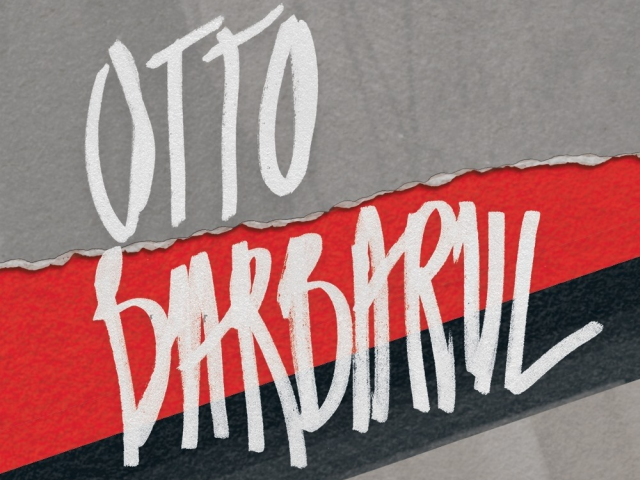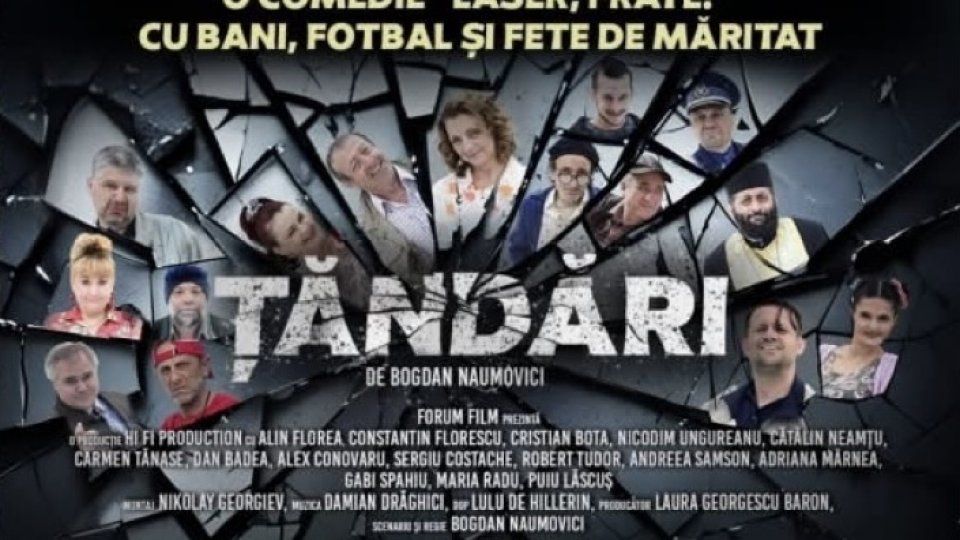“Otto the Barbarian”, the best Romanian feature film in TIFF, now in theaters
Otto the Barbarian saw its world premiere as part of the Sarajevo International Film Festival

Corina Sabău, 09.10.2021, 13:17
Otto the Barbarian, filmmaker Ruxandra Ghitescu’s
debut feature film, is in theaters across Romania as of September 24. Otto the
Barbarian saw its world premiere in the official competition as part of the
Sarajevo International Film Festival’s 26th edition, and it was
selected as the best feature film in the TIFF Transylvania International Film Festival’s
section Romanian Film Days.
The plot revolves around a 17-year-old punk teenager
who grapples with the death of his girlfriend. The boy ends up captive in a
vicious circle created by his parents, his grandfather, his former lover’s
mother and the investigation carried out by the social services. In order to survive,
Otto will have to confront his feelings and his guilt.
According to the film critic Victor Morozov, Otto is
the most engaging Romanian film character in recent years, all the more so as
he is guided by Ruxandra Ghitescu’s lenient gaze, which is everything a film character
may wish for, when in a tight corner. As for Ruxandra Ghitescu, she hopes for Otto
the Barbarian to be a film that will reward us all emotionally.
The film started off from an article she came across a
couple of years ago and which focused on Octavian Albu, the film’s musical
director and the author of the original movie soundtrack, jointly with Cardinal
rock group. With details on that, here is Ruxandra Ghitescu herself.
Ruxandra Ghitescu: Yes, well, I was trying to find a
contact point with adolescence, and I came across an article about Octavian Albu,
who had been nicknamed Otto the Barbarian and to me, this encounter seemed a
very fortunate one. As the frontman of a punk-rock group, with the entire
outward architecture of punk culture, it seemed to me that Octavian embodied
the marginality of an age that is pretty much ignored in social interaction, in
film and also in literature. Octavian Albu was, from the very beginning, the
adviser for the soundtrack, he joined our team as a musical director, he and
Cardinal group wrote most of the soundtrack, and together we picked up the
songs on the soundtrack that belonged to other punk groups. I can say that, of
the article that inspired the plot, only the name, the hairstyle and the jacket
survived. It is a fictionalisation with no connection whatsoever with Octavian’s
life. In fact, we two met a couple of years after I had found the article, when
Otto was 23 already and a student in London, and he gave me the go-ahead to use
the article as a source of inspiration. I got the impression he was very happy
that we managed to make this film, he is a positive person and helped me a lot,
including with on the screenplay.
Ruxandra Ghiţescu set out to make a movie about adolescence
as an age of emotional turmoil and loneliness, an age when music plays an
essential part. At the same time, Otto the Barbarian speaks to teenagers and
parents alike, it is an invitation to dialogue about depression and its consequences.
Ruxandra Ghițescu: From the very beginning our goal was to make a film that relies
on emotion rather than on intelligence, especially because it focuses on this
age when emotion trumps reason. Otto is a very critical character, he is an
introvert, he speaks very little, so his interactions with the others are a
result of his emotions and feelings. We brought out the character’s entire
emotional journey in his various relationships-with his parents, with his
girlfriend’s mother, with the videos left behind by his girlfriend, and above
all with music. I’m very happy to have caught a period when Otto the
Barbarian is screened in theatres and has contact with the audience, it is
only now that I really feel I have made a movie. The entire year 2020, with the
restrictions entailed by the pandemic, with the film-going experience abandoned
so easily, was very painful for me, and I imagine it was the same for others as
well. so I enjoyed the experience of these festivals, the contact with the
public and the experience of watching a film on screen in a cinema hall.
Ruxandra Ghițescu paints a loving portrait, not
without its surprises and some spectacular acting, writes critic Georgiana
Mușat about the film produced by Alien Film jointly with Polar Bear and Alien
Films Entertainment.The cast
includes Marc Titieni, Adrian Titieni, Ioana Bugarin, Ioana Flora, Mihaela
Sîrbu, Iulian Postelnicu, Ana Radu, and the late Constantin Drăgănescu. Ana
Drăghici was the director of photography and Dana Bunescu was in charge with
the editing.





























